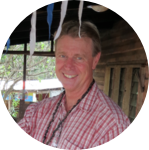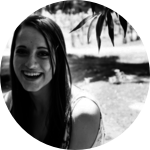About This Project
Triple negative breast cancer (TNBC) has long been associated with high mortality rates and a poor prognosis due to the lack of targeted therapy. Often referred to as an "untreatable" disease, there is a need for a fresh perspective and novel treatments. Natural compounds (existing chemical compounds in nature) isolated from Papua New Guinea may provide increased sensitization of the cancer cells to common chemotherapeutic regimens.
Ask the Scientists
Join The DiscussionWhat is the context of this research?
TNBC patients are typically treated with highly toxic chemotherapy regimens and experience poor outcomes because of the aggressive nature of the disease. These treatments are associated with many adverse events.
Natural products are the main focus of research in finding active compounds for cancer. Our lab has found activity in compounds against HIV, TB, and TNBC. However, we have yet to test whether these compounds may be able to reveal cellular death pathways that are often inhibited in cancer cells.
Lee et al., 2012 showed that they could effectively "rewire" cellular death pathways by using the method of time staggered dosing of anticancer drugs. They found a significant increase in cancer cell death by using these methods.
What is the significance of this project?
Most breast cancers may be targeted using treatments such as tamoxifen or Herceptin®, but TNBC does not respond to these drugs. There is a need for targeted therapy that will provide better outcomes.
Although chemotherapy results in some success in TNBC patients, the drugs themselves induce harmful side effects including heart failure. If natural products are shown to increase sensitivity, it would allow for a lower chemotherapeutic, and therefore less toxic, dosage. If successful, this experiment would reveal a possibly safer and more effective TNBC treatment.
Additionally, this perspective of time staggered treatment may provide new therapy that not only sensitizes the cells, but may fight against drug resistance common in cancer.
What are the goals of the project?
The immediate goal for this experiment is to explore the possibility of natural products increasing the sensitivity of TNBC cells to common chemotherapeutic agents in order to best ensure cancer cell death.
We will take advantage of Papua New Guinea's highly diverse plant and marine life to identify active biological compounds against TNBC, that specifically target TNBC despite its lack of commonly targeted receptors in other types of breast cancer. This will be done by testing our methods on cell lines that are not triple negative.
From there we will identify particular natural products that allow cancer cells to respond more effectively to known medications. Finally, we will observe the cellular effects of time-staggered administration of natural compounds and common anticancer drugs.
Budget
With this funding we propose to screen and identify novel natural products that are anti-TNBC agents by thoroughly investigating our Papua New Guinea plant, marine, and fungal library consisting of about 10,000 complex fractions. This involves testing, isolation, and identification, a highly complex process.
To assist us we would like to hire a half time work study lab assistant for 6 months. Funding would also help facilitate the experiment by providing necessary disposable materials (cell lines, reagents, cell media, cell plates, etc) and to give us access to the state of the art University of Utah Core Facilities.
Results will then be presented at the next American Society of Pharmacognosy meeting in Copenhagen, Denmark in the summer of 2016.
Endorsed by
Meet the Team
Team Bio
I am a PharmD student at the University of Utah College of Pharmacy. I grew up in Salt Lake City, UT and received a BS in biology from the UofU. I have been selected to complete a fellowship in the Pharmacology and Toxicology department at the college. I am interested in biological drug discovery and am considering completing the dual PharmD/PhD program.
I am currently a pharmacy intern at a cancer hospital and know first hand of what cancer patients must go through. As I continue to build my knowledge in the world of pharmacy, I would also like to be involved with the research to find novel drugs.
Mackenzie Yedlin
Although I am originally from Salt Lake City, I am now an incoming sophomore at Middlebury College in Vermont, where I am planning to major in neuroscience. Research, particularly in the biomedical and neuroscience fields, has always interested me. This summer, I have gotten the chance to participate in the University of Utah's Pharmacology and Toxicology Summer Undergraduate Research Fellowship. This triple negative breast cancer project is Matt and my main focus, as we learn about the research profession and the cancer's mechanisms in a hands-on approach.
Project Backers
- 11Backers
- 5%Funded
- $244Total Donations
- $22.18Average Donation



